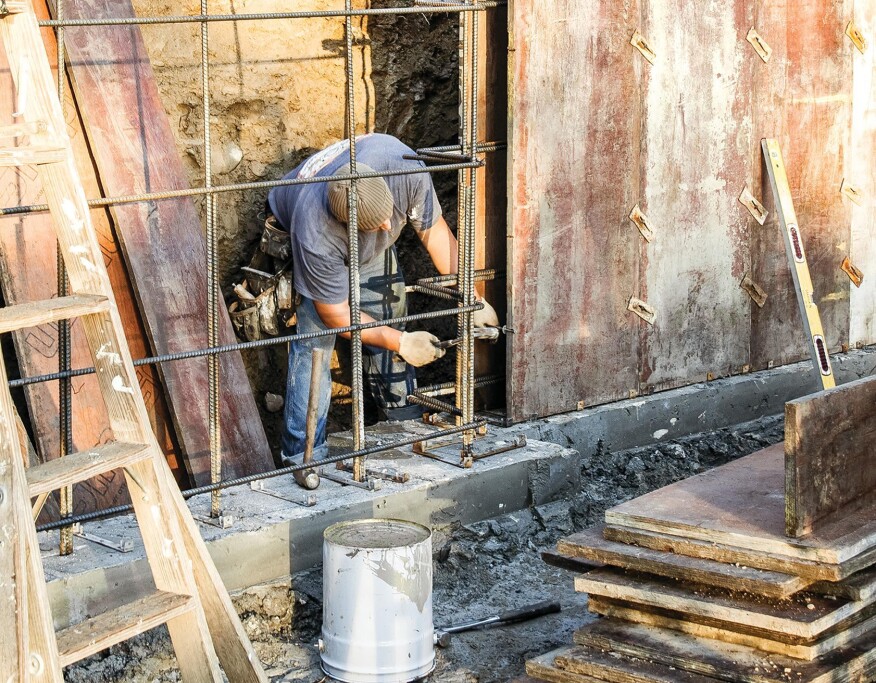Chicago’s latest mayoral election pitted two Democrats at opposite ends of their party’s political spectrum against each other to replace incumbent Lori Lightfoot, and the ensuing fight left the real estate industry on the edge of its seat. Most of the noise around the race emanated from the stark ideological divides between former Chicago Public Schools CEO (and centrist) Paul Vallas and the unapologetically left-wing Cook County commissioner Brian Johnson. However, speculation that a Johnson administration would drive away precious property investment activity grew louder as election day loomed. It became clear that Vallas was the industry favorite as the bulk of his support (and campaign dollars) came from the real estate community, but it was Johnson who pulled out ahead.
Johnson’s win is largely seen as a victory for Chicago’s teacher’s union and reproductive healthcare advocates, but developers and investors appear to be on edge about Johnson’s policy proposals once he steps into office. If Johnson manages to salvage Chicago’s crumbling public transit infrastructure, real estate players may have reason to rejoice instead of looking for greener pastures elsewhere.
Penny-pinching and number crunching
Johnson is bringing in a laundry list of objectives when he officially steps into office on May 15. The first of which includes a full-scale efficiency review of Chicago’s government (which Johnson believes will yield half a billion in savings), developing a long-term budget projection with detailed timelines in the name of budget transparency, and, the kicker, implementing strategic tax increases that affect corporations and wealthy individuals—not Chicago’s average Joes. Of course, many of those strategic tax increases involve real estate, but Johnson’s vision for the property sector is promoting a dissonant chorus of mixed reviews.
With inflation so bad that the Federal Reserve still hasn’t let up in its relentless pursuit to crank up interest rates with no signs to let up, Chicago has seen property taxes rise in tandem. That’s because back in 2020, both the City Council and current Mayor Lori Lightfoot linked the city’s annual property tax increase to the rate of inflation. At the time, Lightfoot claimed that the move would be better for Chicagoans as it would make their property tax hikes more predictable. But just after that mandate was put into place, the COVID-19 pandemic reared its ugly head and sent the global economy into a spiral. Though inflation was at 1.23 percent in 2020, it later shot to a four-decade high, and the Federal Reserve’s persistent campaign to raise interest rates in an effort to get it down has yet to wrangle it back to normal. Now, Lightfoot’s plan is putting serious financial strain on homeowners, renters, and businesses in Chicago who now face mammoth bills.
Compounded with the fact that Chicago is amidst a worsening housing crisis, any whiff of raising property taxes is bound to stoke ire for cash-squeezed Chicago homeowners. But Johnson insists that property taxes for Chicagoans are high enough, and his administration will not raise them any further than they are now. “Any plan to invest in Chicago can only be considered serious if it achieves a balanced budget. Anything less is just another empty promise,” his campaign website reads. “The same is true for any plan that would increase property taxes on Chicagoans. Our city faces a housing crisis, and raising property taxes would only exacerbate that crisis, leading to a death spiral for our city.”
Below the property line
Johnson is adamant that he will not raise property taxes for any property worth less than $1 million, but he has been very vocal about supporting a measure that would triple real estate transfer taxes on assets exceeding $1 million.
Obviously, the real estate industry isn’t exactly thrilled at Johnson’s proposal, to the point that many believe the tax hike will dissuade investors from any activity in Chicago. The move has been coined as Johnson’s “mansion tax,” but that’s not exactly an accurate nickname since not every building that has a value of $1 million is a mansion. Many properties that will fall under the tax’s purview are multifamily dwellings or apartment complexes where working class families reside. Plus, high inflation continues to drive an increase in property values, so many properties that wouldn’t meet Johnson’s tax threshold in a balanced economic landscape are getting pushed into the triple tax territory if those properties were to go under contract within the next few years.
There are downsides to Johnson’s triple tax proposal, but there’s a broader narrative to what he is trying to achieve. Even though the race against Vallas was a contentious nail-biter until the eleventh hour, Johnson cinching his win may have been the easiest part of his career as mayor. Johnson is wading into a sea of financial problems that are looking to be rougher than what his predecessor experienced. Lightfoot may have untangled some of Chicago’s financial knots during her time in office, but the city is still majorly in the red. Projections from the nonprofit organization Center for Tax and Budget Accountability show that Chicago is grappling with a deficit in the ballpark of $500-$600 million for 2024, and Johnson won’t be getting the same federal funding boost from the Biden Administration’s COVID-19 stimulus package The American Rescue Plan that Lightfoot had. Even so, Johnson appears to be laser-focused on shoring up Chicago’s infrastructure, a strategy that not only stands to enhance the quality of life for Chicagoans, it could pacify cynics in the real estate sector enough to stick around.
See also

It’s no secret that Chicago’s public transit system is in desperate need of reform. Much of the Chicago Transit Authority’s (CTA) infrastructure is decades old and in need of repair or replacement. The CTA operates a vast network of buses and trains, many of which were built in the 1970s and 1980s and are well past their intended lifespan. The trains, for example, often experience mechanical failures and breakdowns, leading to delays and service disruptions. Additionally, many of the stations and tracks are in poor condition, with rusted metal, crumbling concrete, and deteriorating electrical systems. Tacking on a pandemic-induced dip in ridership has only exacerbated the CTA’s financial struggles as fewer riders equals fewer dollars coming in.
Train damage
Aside from getting the city’s finances in order, Johnson is particularly keen on revamping the city’s public transit system. Johnson campaigned on the idea that Chicago’s transit infrastructure is a huge asset, but is in need of a major overhaul. Though Vallas, Johnson’s rival, was framed as the favorite candidate for real estate, Johnson’s instinct to invest in the CTA may prove that his leadership could actually be beneficial for the commercial property market.
Improved public transportation can make it easier for people to travel to and from commercial properties and so could benefit office buildings, retail centers, and industrial parks. Improved public transportation can attract new businesses to the area, which can bring more jobs and economic activity to the community. Better public transportation options can also lead to reduced traffic congestion that make for an easier flow of people and packages throughout a city. Research has shown that proximity to public transportation has a favorable impact on commercial real estate values, but that’s only if it is reliable in the first place.
Johnson may not have been the candidate that donors from the real estate community had banked on, but that doesn’t necessarily mean that his transition to power will throttle Chicago’s property sector. If Johnson’s leadership can demonstrate tangible improvements to the CTA, there’s a chance real estate transactions in Chicago won’t slow despite his steep tax hikes. Little is known about how much Johnson will follow through on his campaign promises, he has yet to detail which of his policies will take priority when he steps into office. If he puts out a comprehensive plan to fix Chicago’s public transit system and manages to follow through with it, his property tax hikes could be an easier pill to swallow.









